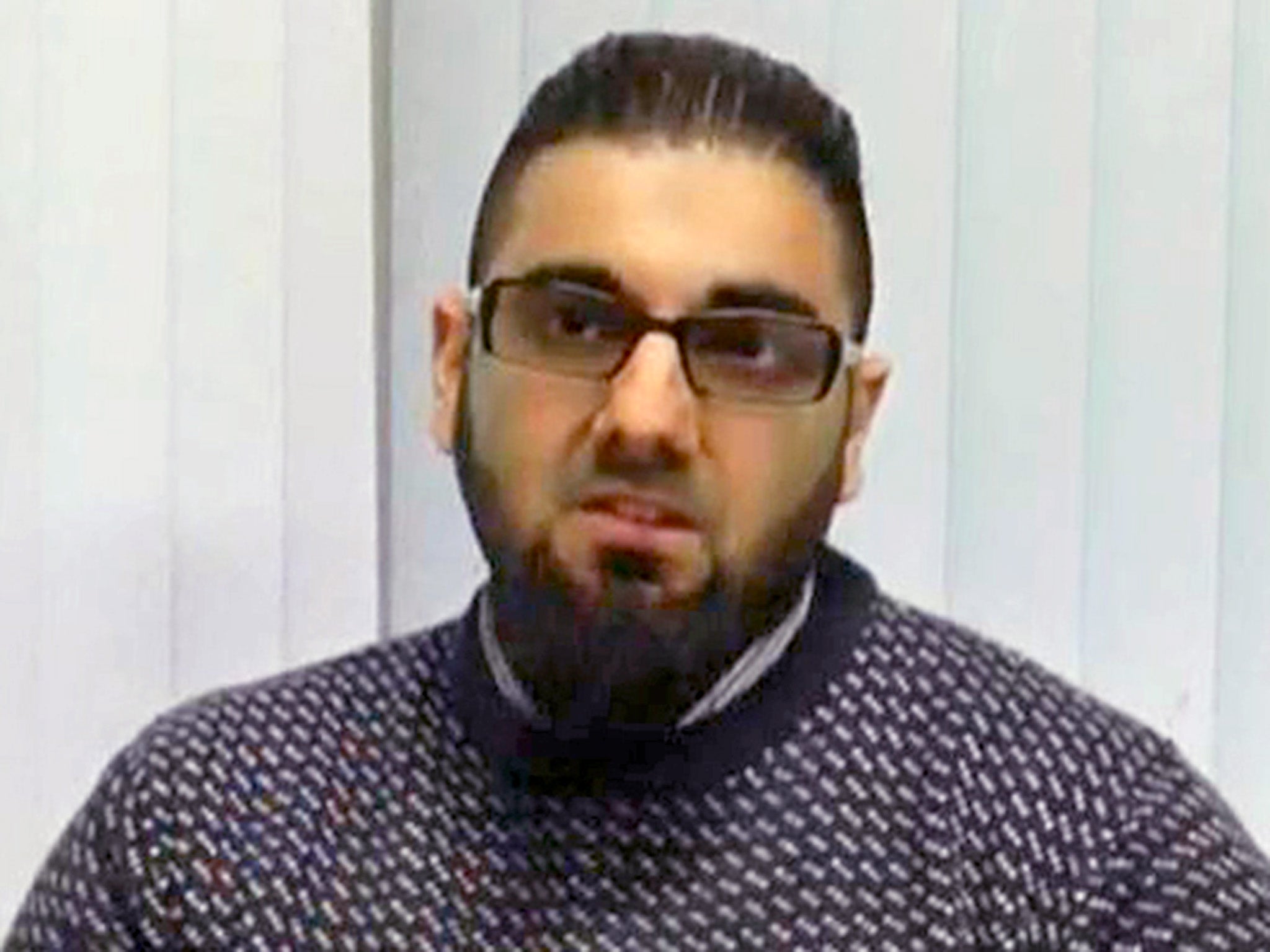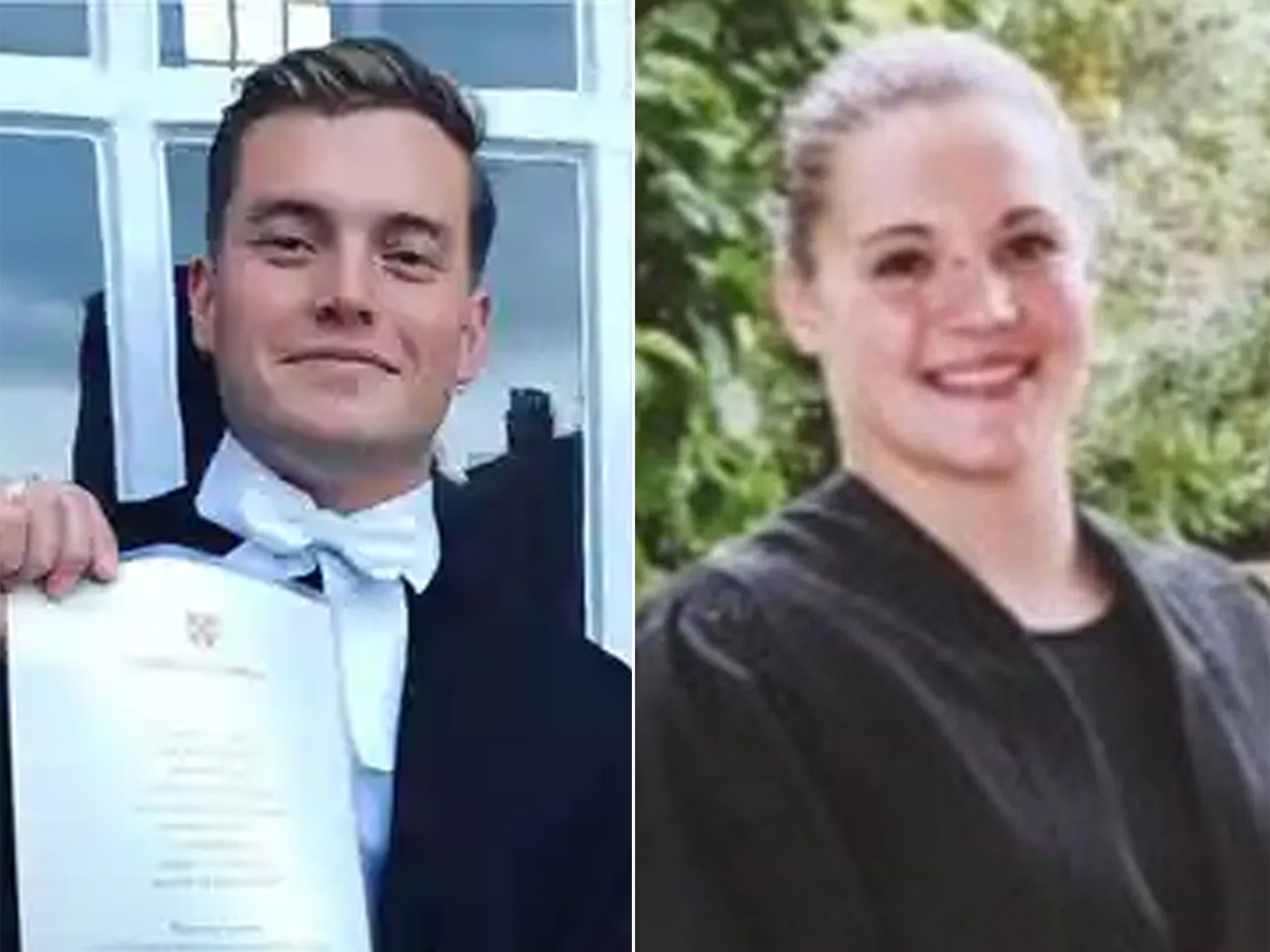Fishmongers’ Hall terrorist’s status as ‘poster boy’ for rehabilitation scheme ‘blinded’ authorities to threat, inquest finds
Usman Khan appeared in promotional videos and leaflets for the Cambridge University scheme he later targeted
A convicted terrorist’s status as a “poster boy” for a prison rehabilitation scheme “blinded” authorities to the threat he posed before he launched a deadly attack, an inquest has found.
Usman Khan murdered two people at an event held by Cambridge University’s Learning Together programme at Fishmongers’ Hall in London, on 29 November 2019.
Police and MI5 believe he targeted people linked to the scheme, including his victims Jack Merritt and Saskia Jones, while “bypassing” staff at the venue.
Khan had taken part in Learning Together courses inside the high-security Whitemoor prison, while serving a sentence for trying to set up a terrorist training camp.
He became a “peer mentor”, had been featured in leaflets and videos, and was given a laptop by the scheme after being freed.
Every authority charged with managing Khan following his release from prison in December 2018 said they believed the programme to be a positive influence and “protective factor”.
Despite surveillance by MI5 and police, and strict probation monitoring, no agencies spotted Khan’s preparations for his attack.
An inquest jury found “omissions and failures” by authorities contributed to his victims’ deaths, including a “blindspot to Khan’s unique risks due to his ‘poster boy’ image”.
Dr Amy Ludlow, the co-founder of Learning Together, denied holding Khan up as a “poster boy” while giving evidence at the inquests.
However, witnesses from other organisations said he was seen as a “success story” for the scheme, which was awarded £214,000 of government funding in 2018.
Learning Together, which was run in several jails, saw inmates take classes alongside Cambridge University students inside prison.
There was little discussion of their offending history, the inquests heard, and one Learning Together employee who was in contact with Khan was not aware of his previous plot until he Googled his name.

Students were encouraged to “keep in touch” with released prisoners, and invited to events alongside ex-offenders such as the one held at Fishmongers’ Hall.
The courses did not lead to formal qualifications and six months before the attack, a police officer had raised concerns that Khan’s “bubble could burst” as he struggled to find a job.
Mr Merritt knew Khan before the attack through his role as course co-ordinator for Learning Together, while Ms Jones had volunteered for the scheme at a different prison and only met the terrorist when they were sat on the same table at the event where he launched his attack.
Ms Jones’ family said they were “particularly concerned” by evidence given by Learning Together directors at the inquests, accusing them of having “scant regard for the fundamental safety of their staff, volunteers and attendees at the event at Fishmongers’ Hall”.
Speaking after the verdicts on Friday, her uncle Philip Jones said: “It could be said that their single-minded view of the rehabilitation of offenders – using Khan, in our view, as a poster boy for their programme - significantly clouded their judgement.
“It seems there was no intent on their part to listen or take notice of what they were dealing with in working with such a high-risk individual.”

Ms Jones’ family pointed to evidence that senior Learning Together staff had declined opportunities to learn details of Khan’s previous terror offending and risk factors, and that their views appeared “unchanged”.
“Their refusal to consider that they may have done things differently is astounding and insulting to the family,” Mr Jones said.
In written submissions to the inquests, Mr Merritt’s family said they were also “surprised and disappointed” that Learning Together was still not considering excluding terror offenders from its work.
His relatives raised concerns over how the scheme was rolled out from low-security prisons to the high-security HMP Whitemoor “without full evaluation or appreciation of the very different risks” and high-risk inmates such as Khan.
“Jack’s family believe that these activities have to be properly safeguarded, and this did not happen in the present case,” a statement added. “But such activities must continue. To do otherwise would be to allow Khan’s attack on liberal democracy, and the values which underpin it, to have won.”
While giving evidence to the inquests, Dr Ludlow said that at the point Khan joined Learning Together courses she was aware that he was a terror offender and that he was known as “high-risk Khan”.
However, the inquests heard that the academics who accepted Khan’s initial application for a 2017 creative writing course were not aware of intelligence that he was involved in prison violence, and radicalising fellow inmates.

Dr Ludlow said no categories of prisoner were automatically excluded from Learning Together and that she did not believe they should be, as long as prison security staff approved their attendance.
The programme has been “paused” since the attack and an internal review was conducted by Cambridge University.
Dr Ludlow said that it had worked on new risk assessment and management procedure, but when asked if those would have changed the approach towards Khan she replied: “I know this is difficult , but no.”
She said that she still believed it was right to enrol Khan on Learning Together courses, and to invite him to the event where he launched his attack.
Dr Ruth Armstrong, her fellow Learning Together co-founder, said she hoped the programme would be able to continue after “learning from what happened”.
She said a Cambridge University “reflections group” had recommended that it remains paused for a further year.
A Ministry of Justice official who gave evidence at the inquests did not rule out continuing to allow Learning Together to run education programmes in prisons.
He added: “We would certainly want to understand the outcome of this inquest … take stock and make sure that we’re satisfied that it’s appropriate to continue.”



Bookmark popover
Removed from bookmarks